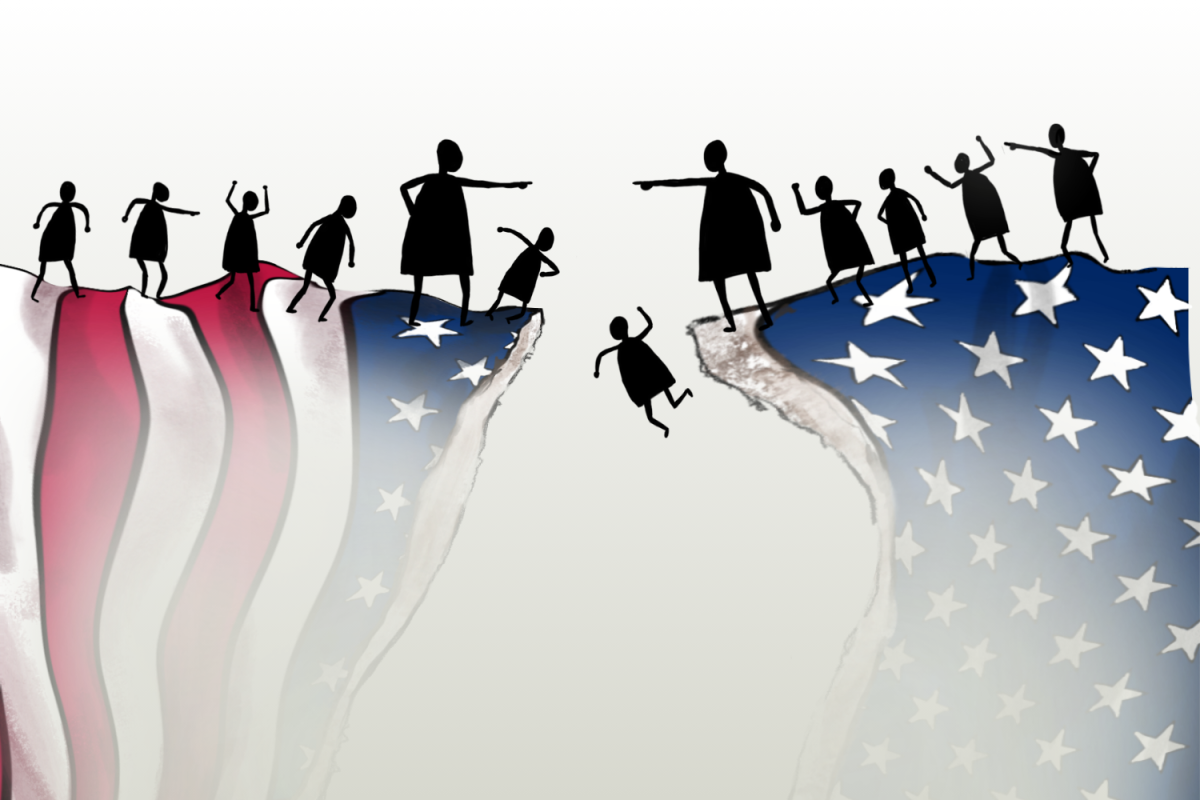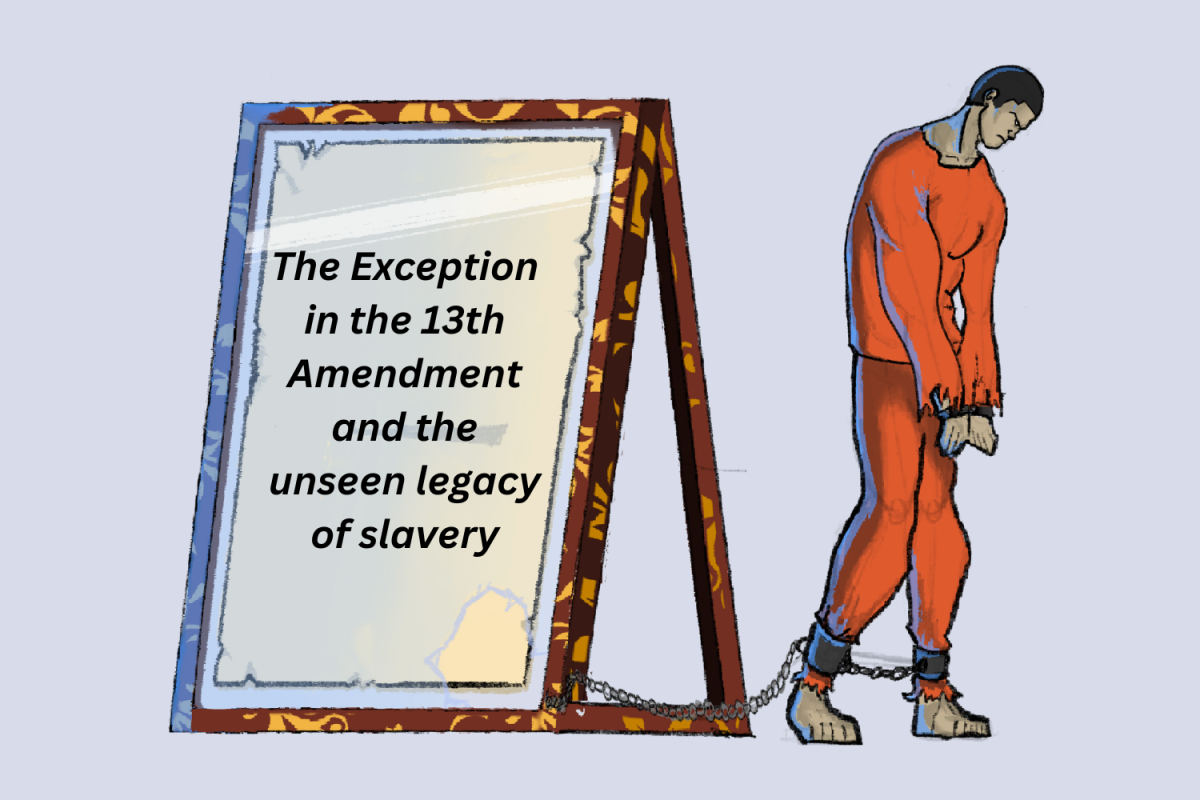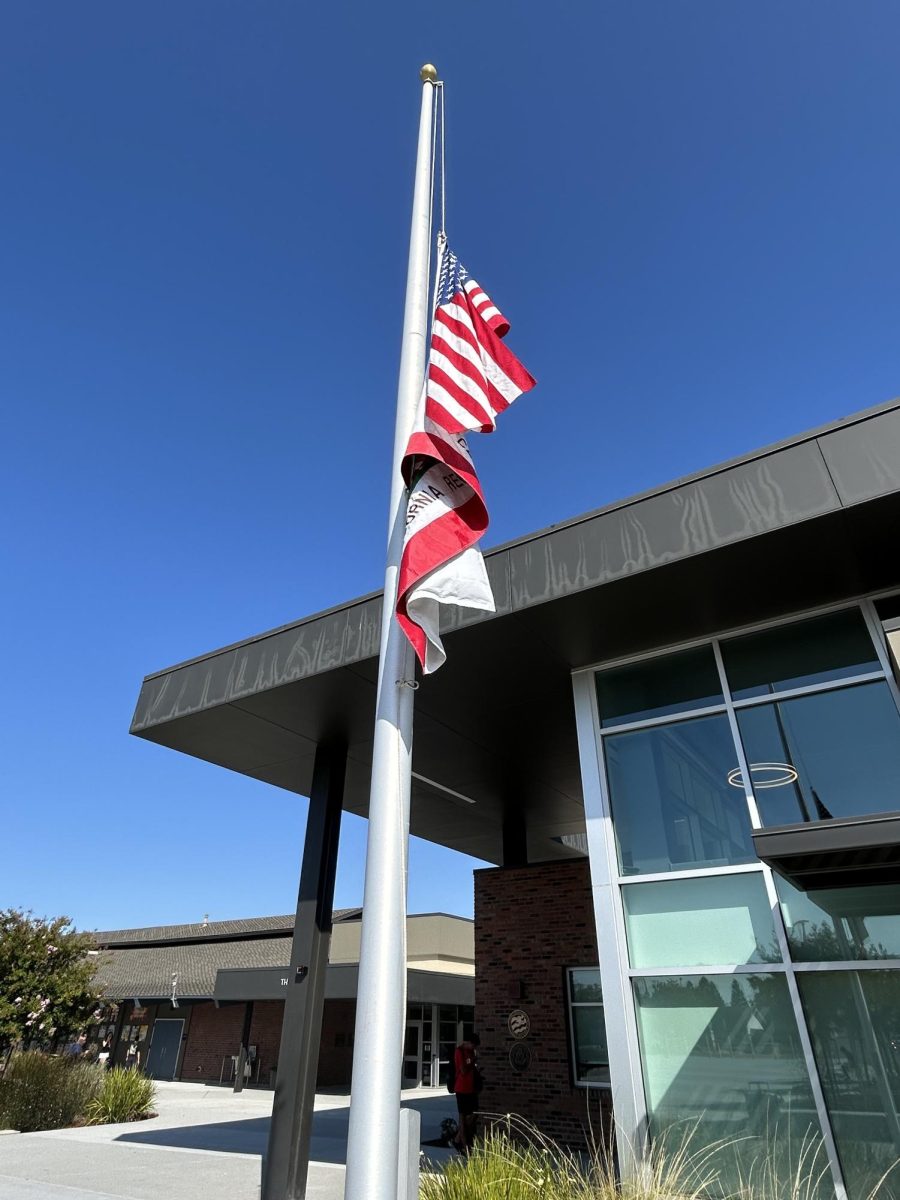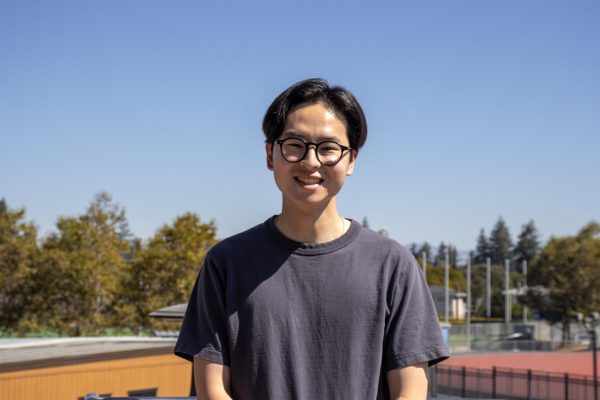In classroom discussions, debates and across social media, the term “woke” has become a lightning rod for criticism. What began as a call to social justice has been weaponized by conservative politicians as an insult for liberals, fueling the fire of political polarization and stifling pertinent discussions. Hostility toward wokeness is the foundation for many right-wing political influencers, who eagerly divide Generation Z with their fiery rhetoric on social media.
In September 2024, conservative commentator Charlie Kirk visited Pennsylvania State University, where he bashed a “woke” student for being radical and overly-sensitive in a question and answer session. A video of the altercation posted to Kirk’s YouTube channel has over five million views.
To Kirk and others like him, “woke” describes someone who has extreme left-wing views on race, gender and sexuality. This is the basis for the way they want to portray all liberals: forcing queerness on kids, being anti-family and hating white and cisgender people. It’s an image that’s easy to spread, and more importantly, easy to make fun of.
“Wokeness has been appropriated by the political right as a disparaging term for those part of progressive movements or people whose opinions counter traditional ideological beliefs,” social studies teacher Mike Williams said. “The other side of wokeness means to be aware of things that you weren’t aware of before, possibly leading to empathy for these progressive issues.”
The term “woke” originates from Black vernacular slang. “Stay woke” was a popular phrase calling on Black Americans to be aware of the dangers of racism in the 1930s. In the 2010s, it broadened to describe a new social justice movement: one that focused heavily on diversity, equity and inclusion — often, some believed, to the point of policing the speech and actions of others.
Students and professors alike have raised concerns about liberals who identify with wokeness and their effect on free expression on college campuses. In a 2023 op-ed in “The Boston Globe,” Harvard University Professor Steven Pinker argued that woke ideology suppressed meaningful political discussion at Harvard. Conservative students and professors censored themselves to avoid backlash from the school’s left-leanings. According to the Foundation for Individual Rights and Expression, there were 877 attempts to punish professors for speech protected under the First Amendment between 2014 and 2022.
Valid concerns about extreme wokeness were cut short by a right-wing crusade. Politicians use an “us versus them” mentality to isolate those considered woke for not having “normal” political beliefs. Wokeness quickly went from something liberals were proud of to a taboo slur.
Ben Shapiro, colleague of Kirk and host of “The Daily Wire,” a conservative YouTube talk show, visits universities, painting himself as a martyr for free speech in the face of woke wrath. The firebrand commentator shoots down “woke” students with insults and quips. People who challenge him are often cut short by a mute button or shouted down by a crowd. Each conversation ends the same way — Shapiro triumphing over wokeness through a selection of token one-liners, with nothing gained on either side.
“The entire effect is to try to generate outrage among their audience, which Shapiro and Kirk do,” San José State University political scientist James Brent said. “We’ve seen Donald Trump talk about eating dogs and cats — that came from a right-wing ecosystem which Ben Shapiro is a part of.”
The anti-woke sentiment has bled into younger generations. Shapiro alone boasts over 13.9 million followers across YouTube, Instagram and TikTok, many of them a part of Generation Z. He markets a stoic, unemotional persona to his viewers. His catchphrase, “facts don’t care about your feelings,” stigmatizes personal experiences and rejects the fact that emotions are irrevocably tied to politics. He spreads misinformation, like arguing that transgenderism and homosexuality are mental illnesses, and encourages young people to dismiss them as woke.
In high schools, this attitude can create a hostile environment for students. Homophobic hate crimes and bullying have quadrupled in states with laws targeting LGBTQ rights since 2023. In most high schools, the occasional bout of transphobia is inevitable.
“You will hear a lot of jokes about zey/zem pronouns,” sophomore Raghav Shrivastava said. “Some people believe these pronouns have no basis in reality.”
People tend to block out ideas they’re not familiar with. A lack of exposure to others’ experiences may be the reason for students’ behavior.
“Our campus, in particular, does not accurately resemble the real world, as we are a 90% Asian population and live in a bubble of privilege compared to other environments,” senior and co-president of Lynbrook Model United Nations Elizabeth Jiang said. “In some ways, the lack of perspective doesn’t drive critical thinking. There’s not much motivation to be empathetic if you feel you’re ‘above’ everyone else.”
The term “woke,” like many other labels, reduces complex social issues to a simple distortion, shutting down meaningful discourse. It dismisses the substance of an opponent’s idea by placing it under the umbrella of a single word.
“The Daily Wire” has dedicated its entire platform to the cause. While the company still covers national politics, several sister channels of the show, including “Michael Knowles,” “The Comments Section With Brett Cooper” and Shapiro’s own personal segment, are fixated on scouring the internet for the most extreme views on identity politics and passionately striking them down as woke liberal ideas.
“Labeling has always been a part of American politics,” Brent said. “The things you do are labeled as great, while what the other side does is undermining American democracy.”
National politicians have a habit of using wokeness to scare parents, arguing that pride flags in classrooms and library books with gay characters are forms of “woke indoctrination.” In a 2022 acceptance speech, Florida Gov. Ron DeSantis declared, “We will fight woke in the legislature. We will fight woke in the schools. We will never surrender to the woke mob. Florida is where woke goes to die.”
The anti-woke movement contributes nothing to the broader political discussion. While left-wing extremists attempt to force an orthodox view and way of speaking on all Americans, using “woke” as a label only brings more attention to them. Social media echo chambers exaggerate wokeness.
“Both sides are not talking to the other person or having a productive conversation,” Jiang said. “They’re just saying words, fostering more disconnection and polarization.”
Bringing a divided nation together requires people to engage in open-minded discussions. Understanding an opposing opinion is often as simple as having good intentions when entering a debate.
“Every time people walk out of moderated discussions, the average citizen will say, ‘I didn’t know I had much more in common with the other side,’” Stanford Deliberative Democracy Lab director Alice Siu said. “If we’re able to get folks to sit together and have conversations, we would quickly realize that there are more similarities than differences.”
For elected leaders, uniting voters means initiating those conversations with their opponents. It starts with them being role models by teaching them what a productive and civil discussion should look like.
“If we have more and more elected officials that shift away from using sound bites and headlines to stimulate conversations but instead engage in thoughtful discussion and sit down with their average citizens, that would change the scope of how politics would be viewed,” Siu said.
Political discussion needs to be open on both sides. The discussions also require open ears, minds, and a will to collaborate. At Lynbrook, students should be aware of the amount of misinformation and bias on social media. Identifying the intent of the speaker — to civilly debate or to humiliate and ridicule — can mean the difference. Society needs to be less swayed by punchlines and images, and more by the merit of an actual argument and its context regardless of political bias. Perhaps then our nation would grow closer to be able to have open, honest conversations about divisive issues.



































































